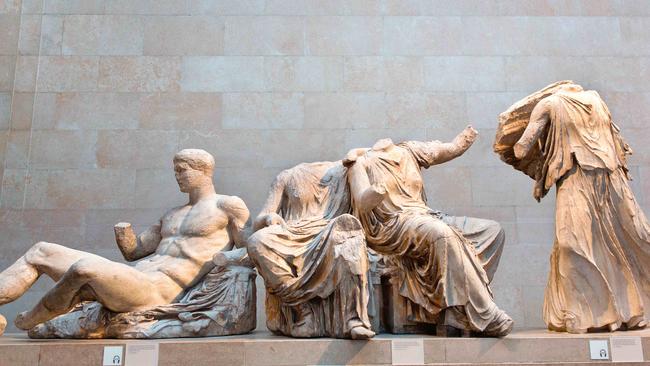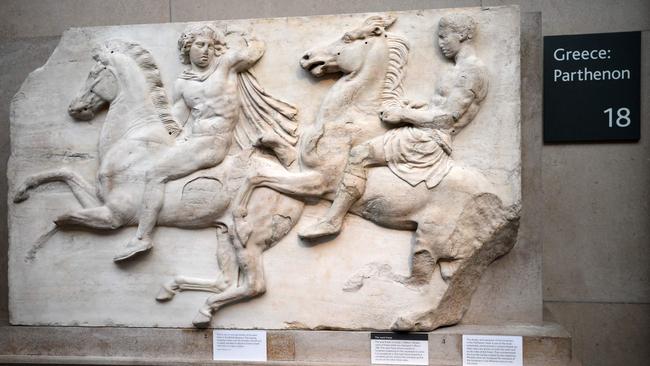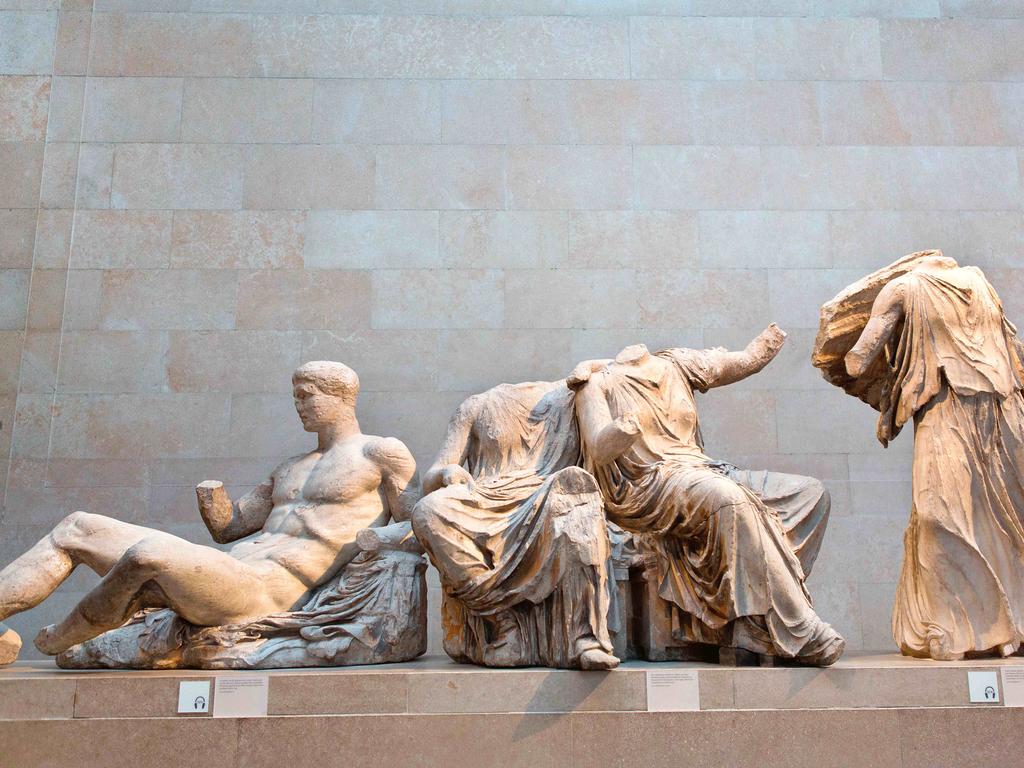UK won’t lose its (Elgin) marbles, but may want to bargain for them
The Elgin Sculptures could return to Athens as part of the new British Labour government’s charm offensive aimed at resetting relations with Europe.

For Lord Byron they were “sacred objects plundered by profane English hands”, while for generations of British Foreign Office mandarins they have proven a reliable source of diplomatic tension. But now come hints that Downing Street could cast the Elgin marbles in a new role – as ambassadors in an international charm offensive.
New Prime Minister Keir Starmer appears to have opened the door to returning the treasures to Athens amid a broader bid to “reset” relations with Europe, with his Labour Party indicating it could accept a long-term loan agreement between the British Museum and Greek ministers.
Before they became immersed in one of the world’s longest-running and most bitter art feuds, the 2500-year-old marbles, also known as the Parthenon Sculptures, graced the Acropolis, the ancient citadel that looms over Athens. They were removed by Lord Elgin from the city, which was then occupied by the Turks, in the early 19th century, when he was the British ambassador to the Ottoman empire.
Under a law passed in 1963, which Labour has said it will not repeal, the British Museum is barred from permanently returning items. However, the new culture minister, Chris Bryant, has told parliament a loan of objects would be a “matter for the trustees” of the museum. He noted the “constructive partnership” between George Osborne, the museum’s chairman of the trustees and former chancellor of the exchequer, and Greek ministers.
Osborne has said there is a “deal to be done” with Greece for the sculptures to be displayed temporarily in the Acropolis Museum in Athens.
Bryant also welcomed an agreement struck by the Victoria & Albert Museum and the British Museum in April to return 32 gold and silver items stolen from modern-day Ghana 150 years ago. The loan lasts for three years, with an option to extend it.
Under former prime minister Neil Kinnock in the 1980s, Labour supported returning the marbles. The government of Tony Blair did not follow through on that pledge, but documents released last year suggested it did consider a “long-term loan” to Greece in the hope of winning support for the London 2012 Olympic Games bid.
More recently, the treasures have been the source of a diplomatic fracas for the now departed Conservative government.
Last November, prime minister Rishi Sunak cancelled a meeting with Greek Prime Minister Kyriakos Mitsotakis after he told the BBC the British Museum’s custodianship of the Parthenon friezes was like the Mona Lisa being “cut in half”.
In January last year, then British culture secretary Michelle Donelan said the sculptures “belonged” in the UK and that their return would “open a can of worms” and be a “dangerous road to go down”.

A Labour source said the “legal position on this … remains unchanged between the last government and ours”, and pointed to a formal statement from the Conservative government that it “fully supports the position taken by the trustees of the British Museum”.
The source said no request related to the marbles had come across the department’s desk.
The marbles have been displayed at the British Museum for more than 200 years. Most of the remaining friezes that once adorned the 2500-year-old Parthenon temple are in a museum in Athens.
Starmer met Mitsotakis in November, as did David Lammy, now the Foreign Secretary, and Yvette Cooper, now the Home Secretary.
At the time, Sunak accused the Greek Prime Minister of trying to “grandstand and relitigate issues of the past”, after apparently being assured by Athens the sculptures would not be discussed.
Also at that time, Starmer said Greece was “a fellow NATO member, an economic ally, one of our most important partners in tackling illegal immigration”, and that Sunak had “tried to humiliate” his Greek counterpart.
Starmer has sought to use his victory and attendance at several international summits to shift relations with European countries. He has said his government “marks a reset in how the UK collaborates with the rest of the world, with humility and shared endeavour”.
It is unclear if Greece would even agree to a loan, as its government believes that would legitimise the British Museum’s legal claim. Greek ministers have called the marbles’ place in London a “product of theft”.
In Greece, the sculptures are widely seen as an emblem of nationhood, and Osborne has sought to secure a loan deal that would allow them to be returned without a change in the law or the museum relinquishing its claims.
The British public seems broadly sympathetic to the Greek position. In January last year, a YouGov poll, carried out for the Parthenon Project, which campaigns for the sculptures’ restitution, found 53 per cent of UK adults supported a return, with only 21 per cent opposed to such a move.
The British Museum rejects the notion that Elgin “stole” the sculptures, saying he had “acted with the full knowledge and permission of the legal authorities of the day in both Athens and London” – the former authority being the occupying Ottoman Empire.
The Times





